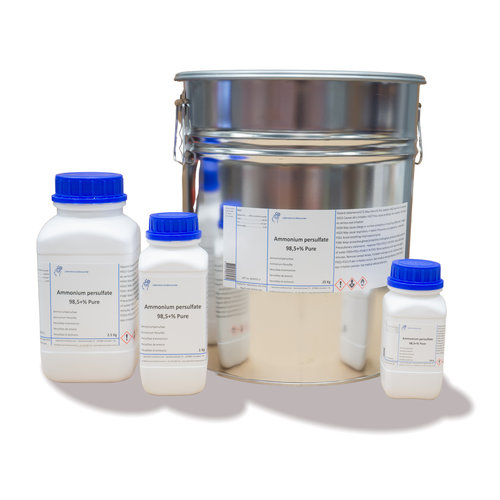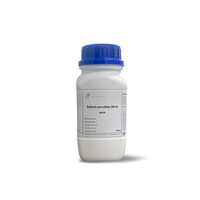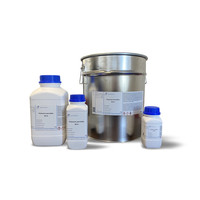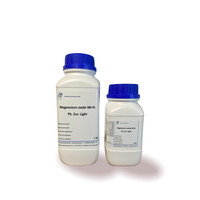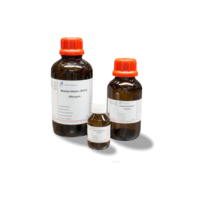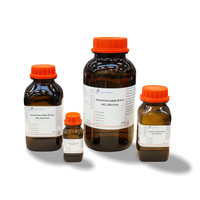You have no items in your shopping cart
Ammonium Persulfate 98.5+% Pure
- Buy 2 and save 5%
- Buy 6 and save 10%
What is Ammonium Persulfate?
Ammonium persulfate, ammonium peroxydisulfate or APS, is a chemical compound with the formula (NH4)2S2O8. It is a strong oxidizing agent, first prepared by H. Marshall using the same preparation method as potassium persulfate K2S2O8.
Ammonium persulfate is very soluble in cold water, a sharp drop in temperature accompanies the solution. It is a very powerful oxidizing agent and a radical initiator: it can generate radicals under mild conditions and lead to radical polymerization reactions (cf. Polymerization).
What is ammonium persulfate used for?
It is used to etch copper onto printed circuit boards, an alternative technique to the solution of iron(III) chloride FeCl3. It is also used in combination with tetramethylethylenediamine to catalyze the polymerization of acrylamide to make polyacrylamide gel.
Ammonium persulfate is the main ingredient of Nochromix. By being dissolved in sulfuric acid H2SO4, it is used to clean laboratory glassware as a metal-free alternative to chromic acid baths.
The documentary Gasland (2010) by American Josh Fox shows that the US shale gas extraction industry recognizes the use of ammonium persulfate diluted in a mixture of water, other chemicals, toxins and sand for injection into shale gas extraction wells as a hydraulic fracturing fluid. Ammonium persulfate is used as a diluent, but this technique to release the gas from the shale seam also has the consequences of contaminating the groundwater with the fracturing fluid. For a production well you need between 10 and 30,000 m3 of water, of which about half is recovered after crushing.
Buy ammonium persulfate?
You can buy ammonium persulfate at Laboratoriumdiscounter. Not only because it is the cheapest choice, but also the best quality! So you can order ammonium persulfate easily and quickly at Laboratoriumdiscounter.nl!
Technical data
APS, Ammonium persulphate
Empirical formula (NH4)2S2O8
Molar mass (M) 228,20 g/mol
Density (D) 1,982 g/cm³
Melting point (mp) ~120 °C
ADR 5.1 III
WGK 1
CAS No. 7727-54-0
EG-Nr. 231-786-5
UN-Nr. 1444
Downloads
$$$$$
Hazard statements
H272 May intensify fire; oxidiser
H302 Harmful if swallowed
H315 Causes skin irritation
H317 May cause an allergic skin reaction
H319 Causes serious eye irritation
H334 May cause allergy or asthma symptoms or breathing difficulties if inhaled
H335 May cause respiratory irritation
Precautionary statements - prevention
P261 Avoid breathing mist/vapours/spray
P280 Wear protective gloves/protective clothing/eye protection/face protection
Precautionary statements - response
P302+P352 IF ON SKIN: Wash with plenty of water
P305+P351+P338 IF IN EYES: Rinse cautiously with water for several minutes. Remove contact lenses, if present and easy to do. Continue rinsing
P332+P313 If skin irritation occurs: Get medical advice/attention
P337+P313 If eye irritation persists: Get medical advice/attention




